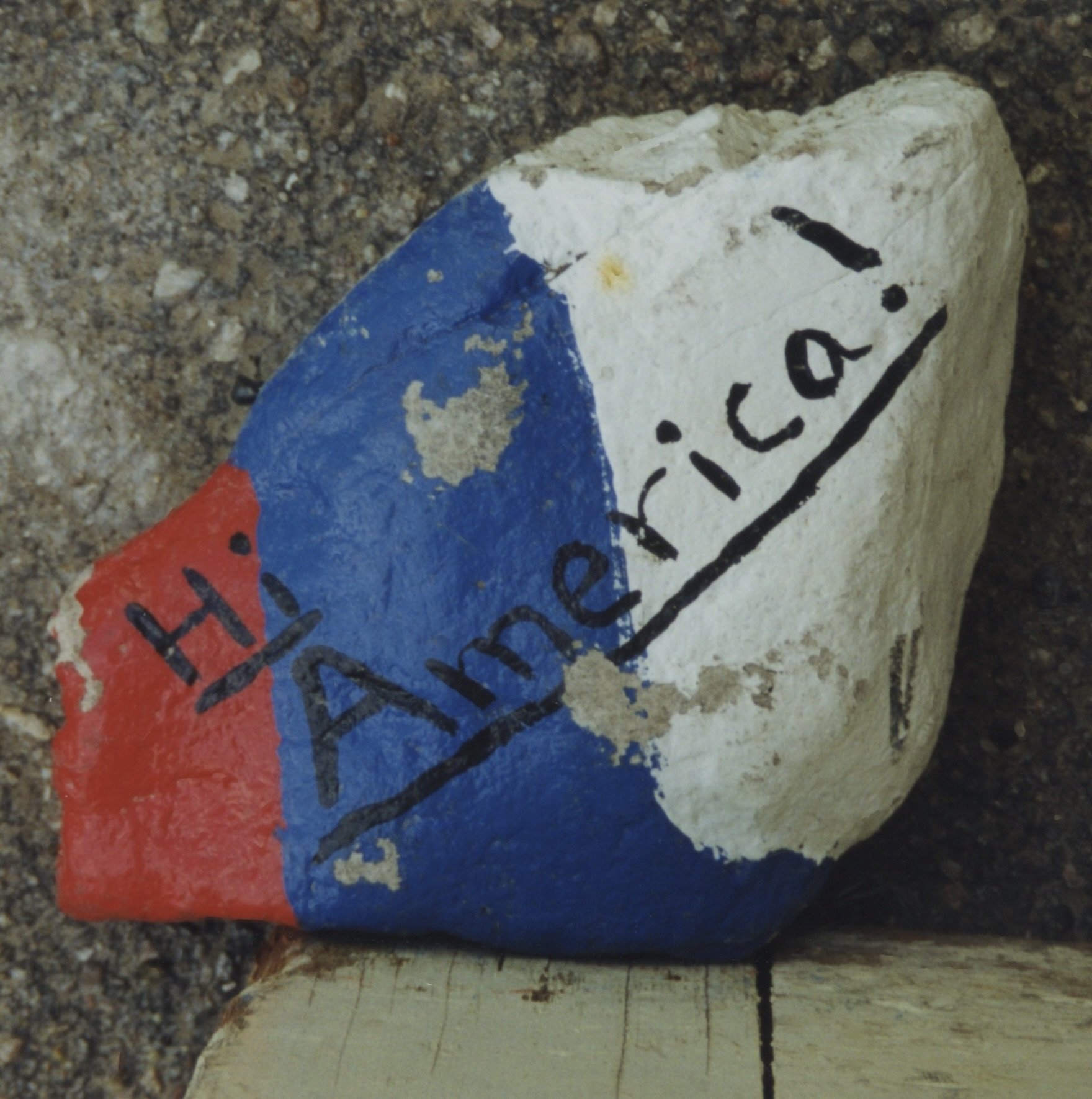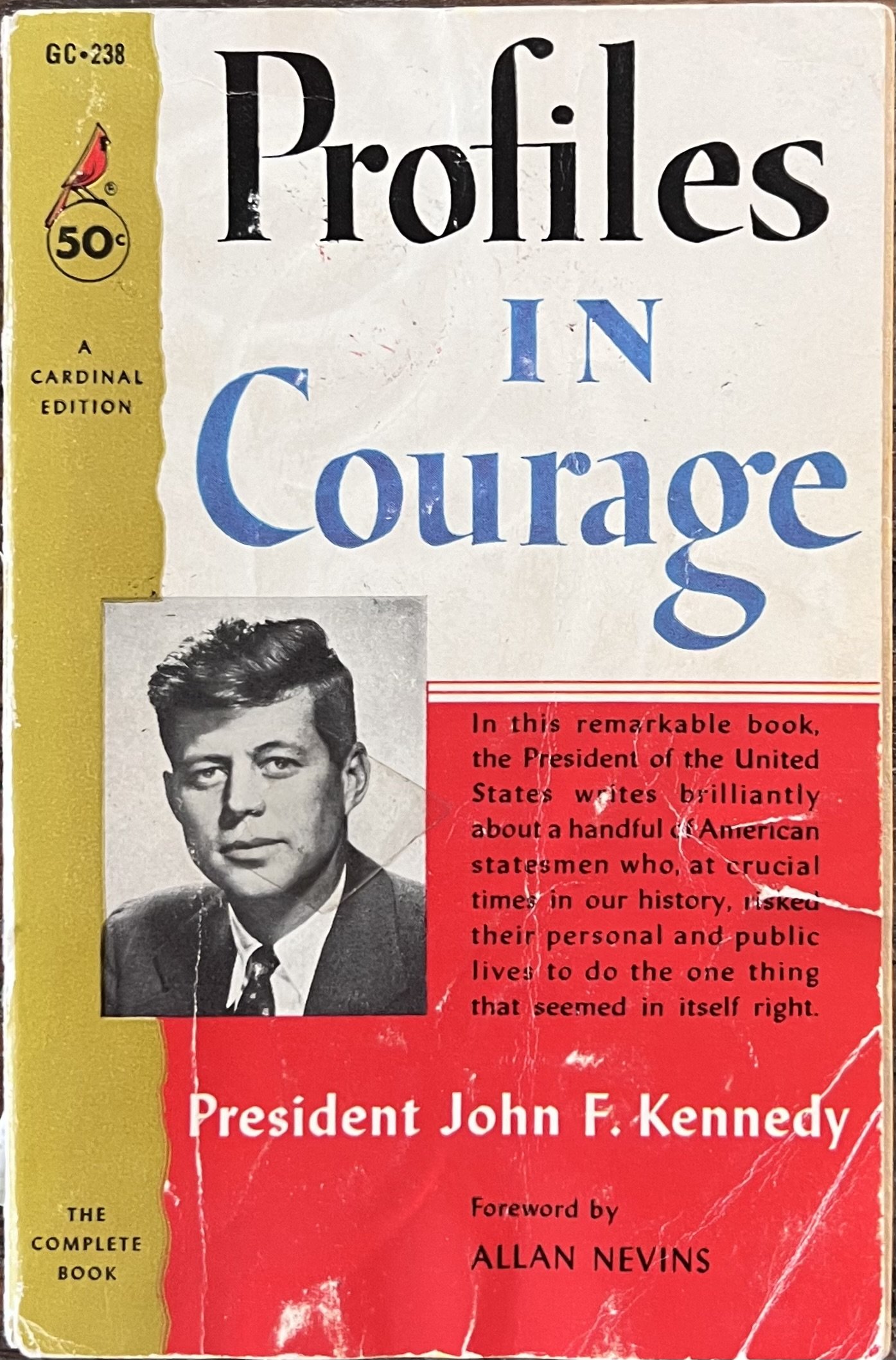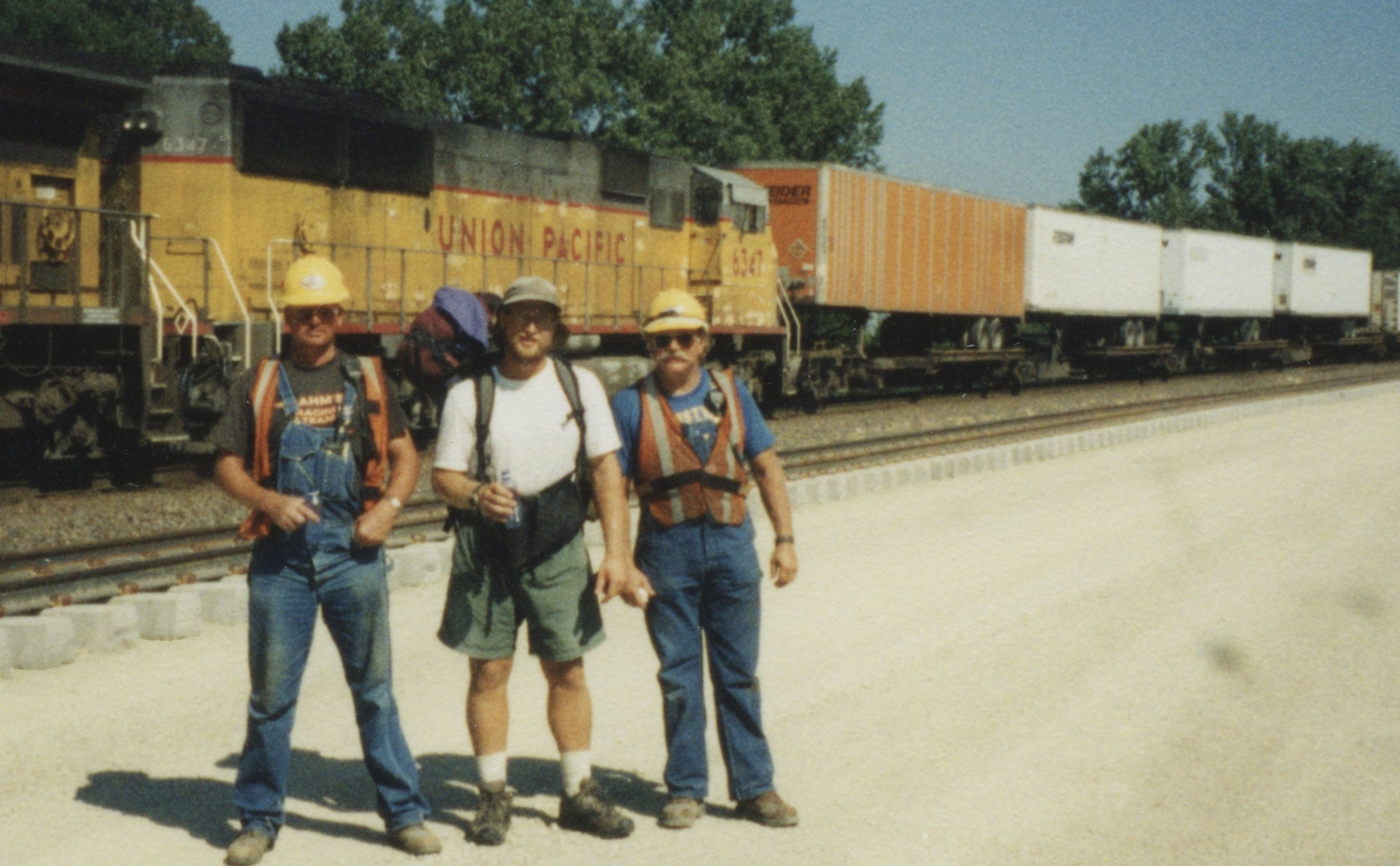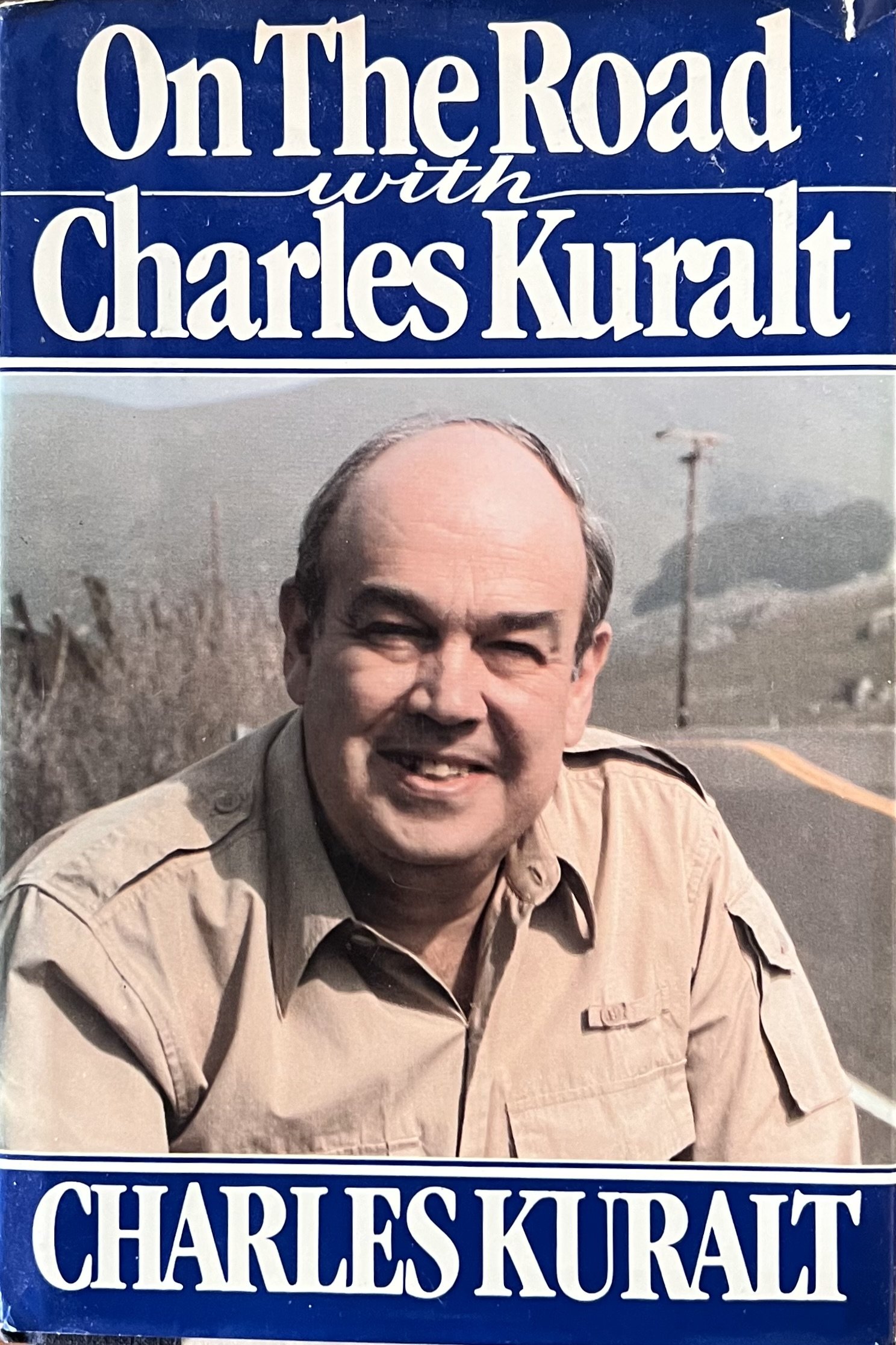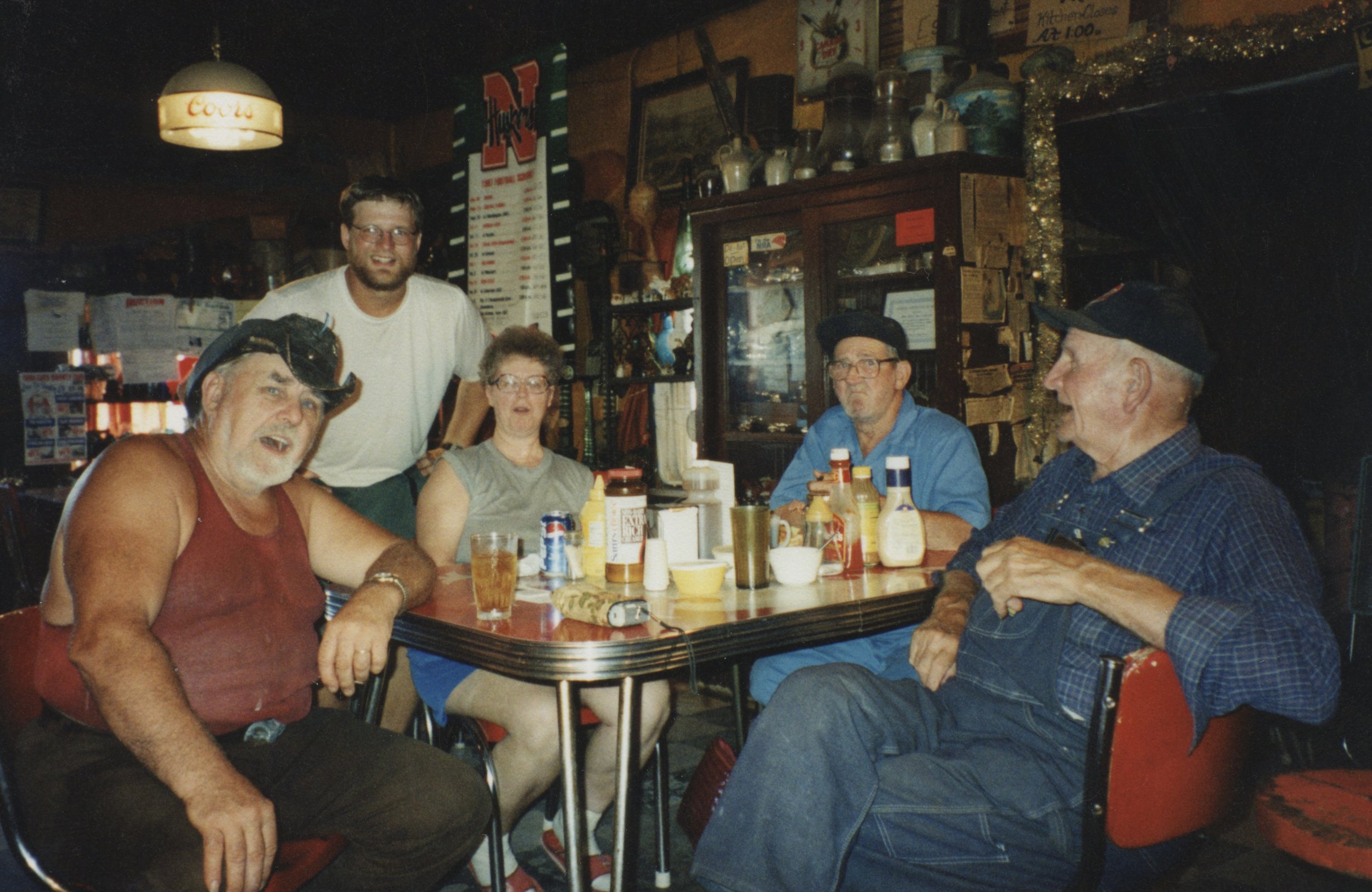To those that would lead…
‘…welcome to all…’
Painted doorstop, rural America
‘Everyone you meet has a story, and, Son, you should learn to ‘See’ this, and learn how to learn from it.’
I know I didn’t appreciate him at the time.
My Dad was a teacher. Through and through. He had an earnest passion for finding the Good in others. And his students knew this, and through it, his ability to help them to see it too.
As an American History teacher who had a passion for technology, my Dad loved the underdog and the unappreciated. And he loved those that gave voice to these people.
He knew from his study of history, that society can often move and shift in a moment - and that this shift, more often than not, requires the courage of the ‘common person’, to do what many consider extraordinary.
It is with slight irony that many of the things I’ve learned from him, I did not absorb in those moments of instruction but rather, I learned through his example. Through his presence. In the way he treated others, and cared for them, and in the way he worked to better the lives of those he taught, and the community in which he lived.
My parent’s library was full of authors who told the stories they valued, and the stories they felt the world needed to be more aware of.
“…leaders who showed everyday common decency'…’
Book from my Dad’s library (now mine)
One of the books from their library, that I remember reading was Profiles in courage, written by then Senator Kennedy, before he became President. Kennedy said he researched and wrote this book because, he became
‘…interested in the problems of political courage in the face of constituent pressures, and in the light shed on those problems by the lives of past statesmen.’ (1956:xix)
Famous American historian and journalist, Allan Nevins said, in his prologue to the book that Kennedy wrote of,
‘… a special kind of courage: the moral courage of a parliamentary leaders who, in behalf of principle, confronts the passion of colleagues, constituents and a majority of the general public…’
Mr Nevins said that,
‘Mr Kennedy’s instances are of… the courage of intelligent, farsighted, reasonable [people], anxious to hold the ship of state to its true course.’
What history, and the examples from the past teach us is that this need to help the ‘ship of state’ steer true is always present. It requires a constant development of leadership to help navigate the tumultuous waters of circumstance. It is ad present in today’s world as it ever was.
I remember reading these stories as a kid. They told of political leaders who, like one Nebraska Representative and then Senator, George William Norris, said,
“I would rather go down to my political grave with a clear conscience than ride in the chariot of victory ... a Congressional stool pigeon, the slave, the servant, or the vassal of any man, whether he be the owner and manger of a legislative menagerie, or the ruler of a great nation...”
I don’t know what impact these stories had on my own personal philosophy of leadership back then… I don’t remember, as a kid, thinking about it much beyond the enjoyment of, and taking interest in, these stories. But now, years later, I can see how it influenced me.
These stories contributed to my yearning to go out and to meet the men and women of the world who had somehow mastered the skills of courageousness. As a kid prone to fantasy, I felt certain that if I could only find a ‘wise elder’, ‘out there’, then they would take me under their wing and I would be ‘granted’ the required skills from which I could help make the world a better place.
What I found, however, after after trying multiple universities, looking for the ‘wise men and women’ of the world, was that there were no mythological figures. I learned that I had to ‘earn what I learn’ through sometimes painful experience, and that the Truths I sought, were actually hidden in plain sight.
The wisdom that was needed to make the world a better place, I discovered came from the every day heroes, and their stories, almost sacred, of which they rarely shared. The stories about struggles, and trying times, and how they were able to marshal their resources and skills and determination, to make it through. Stories that held shared truths for those that were smart enough to listen.
“stories of courage from along the line”
A water break, on the Union Pacific Line, North of Fairborn Nebraska
Perhaps this is part of what drove me, as a kid, to sell everything I owned, and to set out on foot to walk across America. I was searching for my path in the world, and years later, I am starting to see the patterns.
You see, when I did find myself in need of vision and hope, I found it in the stories of determination shared with me by the GOOD folks whom I met. I wrote of this in an earlier post (here).
They, like the railroad men in the photo above, did work that, when I stopped long enough to listen, was fascinating. The paths they traveled to bring them to the present moment were full of insights, and inspiration… and wisdom. And I realised then, if one could really SEE, that these men and women played critical roles in the narrative of what was to me, the American story.
And I guess this is why I’m writing this post. Because the lessons I learned on the road hold an especially important message to those that would lead today.
Before I outline this message, I want to first share who first helped me to hear it. It was first planted in my mind by one of my Dad’s Heroes, who has since become one of mine.
‘…our eyes can see. Men with insight, men of granite, bent on chivalry’
Charles Kuralt, one of my GREATEST Heroes
Charles Kuralt was a career journalist with the American television broadcasting company, CBS. He started in 1957 when he was 23, and worked there for over 37 years. While he worked as a war correspondent in Vietnam, and in the revolution in the Congo, he really wanted to cover the stories that were not just of interest to Americans, but were about what makes America so interesting. And this is where I was introduced to him.
My Dad and I would make it a semi-regular tradition to watch Sunday Morning with Charles Kuralt. Dad would sit in his big chair, with a cuppa coffee, and I would sit, or lay on the couch, and together we’d watch and listen to his beautiful, considered voice as he talked about what wisdom the many rich, poor, middle class Americans he met from across the vast nation had to share. Kurslt specialised in these human interest stories such as an interview on an artist fisherman, or a video essay on the founding spirit of America, complete with theatrical readings in the historic places where the arguments that brought about the Declaration of Independence took place.
Charles Kuralt was, in 1996, inducted into the Television Academy’s Hall of Fame, ‘for his unwavering quest for the positive, the optimistic, and the essential goodness of humanity, and for his sincerity and warmth in creating pockets of serenity and sanity in a jumbled and maddening world.’
And this was the important message for those who would lead today… if you want to gain and retain influence and the trust of your constituents, you must care.
Actually care.
With your whole heart.
Care.
Not for yourself, but for those you lead. Listen to them. Deeply. Help them to feel at ease and respected when you are talking with them, regardless of their occupation, or difference from you. If you can do this, make them feel at ease, they will share with you their wisdom, and you will be better able to hear it, and connect with it. And in this relationship, you will both walk away somehow connected and better for the conversation.
“…insights shared…”
The local coffee crew in a cafe in Nebraska
I hear a lot these days about how the world is seeing the end of the American dream. That the experiment in democracy that has withstood countless challenges, is going through a watering down of its strength. It is, some will say, weak, and divided. And, I’ve heard, America has forgotten what she stood for.
I don’t know about that.
I know that the idea of America, and what she stands for was clearly illustrated by Charles Kuralt, and his willingness to be present and respectful with those who shared their stories.
I know that through my own work with people, from across demographics, in the public service, and even political service, there are many, many GOOD people who strive hard for the greater good of others. And I know that good folks like this can be found wherever you go.
And I know that,
“To those that would lead, you need to remember that everyone you meet, and represent, has a story. And, if you are going to bring Good into this world, you should learn to ‘See’ this, and learn how to learn from it.’”
If you want to learn these skills, and want to know more, please reach out to me. You can contact me via the link above, or via LinkedIn @InsighfulPath.

